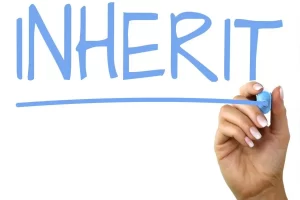Introduction
When a loved one passes away without leaving a will, it can create uncertainty and complexities in the distribution of the estate. In such cases, the court follows a legal process known as intestate succession to determine how the deceased’s assets will be distributed among their heirs. One crucial aspect of this process is designating an executor, an administrator, to oversee the estate’s administration. Morgan Legal Group PLLP, a trusted law firm located in New York City, is here to provide a comprehensive guide on how an executor is designated when there is no will in New York. In this detailed blog, we will walk you through the intestate succession process, the legal requirements for appointing an executor, and the necessary steps to ensure a smooth and efficient estate administration.
Intestate Succession in New York
When a person dies without a will, their estate is subject to intestate succession laws, which govern how the estate will be distributed among the deceased’s heirs. In New York, intestate succession is guided by specific statutes, and the distribution of assets follows a predetermined order based on the relationship between the deceased and their potential heirs.
1. Spouse and Children
If a spouse and children survive the deceased, the assets are generally divided among them. The surviving spouse typically receives a significant portion of the estate, and the remaining assets are shared equally among the children.
2. Spouse but No Children
If a spouse survives the deceased but has no children, the surviving spouse typically inherits the entire estate.
3. Children but No Spouse
If children survive the deceased but have no spouse, the children inherit the entire estate equally.
4. No Spouse or Children
If the deceased has no surviving spouse or children, the estate is distributed to the deceased’s parents, siblings, or more distant relatives, depending on the specific family circumstances.
Designating an Executor
In intestate succession cases, the court appoints an executor, an administrator, to oversee the estate’s administration and ensure that the deceased’s assets are distributed according to the intestate laws.
1. Petitioning the Surrogate’s Court
The process begins with an interested party, such as a family member or potential heir, petitioning the Surrogate’s Court in the county where the deceased resided at the time of their passing. The petitioner must demonstrate that the deceased died without a will and request the court to appoint them as the estate’s administrator.
2. Letters of Administration
Upon receiving the petition, the court will review the case and verify the petitioner’s eligibility to serve as the estate’s administrator. If approved, the court will issue “Letters of Administration,” which grant the appointed individual the legal authority to act as the executor.
3. Administrator’s Duties and Responsibilities
Once designated as the estate’s administrator, the individual assumes the same responsibilities and duties as an executor in cases with a valid will. The administrator must gather the deceased’s assets, pay outstanding debts and taxes, and distribute the remaining assets among the heirs per intestate laws.
Eligibility to Serve as an Administrator
Not everyone is eligible to serve as an administrator in an intestate estate. In New York, the court follows a specific order of priority to determine who can be appointed as the estate’s administrator.
1. Spouse
The deceased’s surviving spouse has the first right to be appointed as the estate’s administrator. If there is no surviving spouse or if the surviving spouse is ineligible or unwilling to serve, other potential candidates come into consideration.
2. Children
If the deceased has adult children, they may be considered potential administrators. If there are multiple adult children, the court may select one or more of them to serve as co-administrators.
3. Parents
If no surviving spouses or children exist, the deceased’s parents may be eligible to serve as the estate’s administrators.
4. Siblings
In the absence of a surviving spouse, children, or parents, the deceased’s siblings may be considered as potential administrators.
5. Other Relatives
If there are no eligible candidates among the closer relatives, the court may consider more distant relatives, such as grandparents, aunts, uncles, or cousins, to serve as the estate’s administrators.
Special Considerations and Challenges
Appointing an administrator in intestate succession cases can sometimes present challenges, especially if there are multiple potential candidates with conflicting interests or if the deceased’s family situation is complex.
1. Disputes Among Potential Heirs
Conflicts may arise when multiple potential heirs have different views on who should serve as the estate’s administrator. The court will carefully consider all relevant factors before making a decision.
2. Complexity of the Estate
The court may select an administrator with relevant financial or legal expertise if the deceased’s estate is particularly complex, involving significant assets or debts.
3. Bond Requirement
In certain cases, the court may require the appointed administrator to obtain a bond to protect the estate’s assets and beneficiaries from potential mismanagement or misconduct.
Conclusion
Navigating the process of designating an executor without a will can be complex and emotionally challenging. The intestate succession laws in New York follow a specific order of priority to appoint an administrator to oversee the estate’s administration and asset distribution. If you find yourself in a situation where a loved one has passed away without a will, it is essential to seek the guidance of experienced estate planning lawyers like those at Morgan Legal Group PLLP. Our team is here to provide you with the knowledge and support needed to navigate the intestate succession process and ensure a smooth and efficient estate administration. For a consultation or more information on designating an executor without a will in New York, contact Morgan Legal Group PLLP today. We are committed to assisting you through this challenging time and helping you protect your loved one’s legacy.












